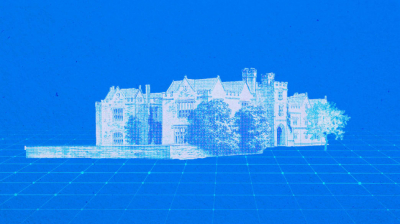From Adversity to Leadership: John's Journey from Air Raids to Premiership
Resilience and Leadership: The Remarkable Journey of Sir John Grey Gorton
Australia's 19th prime minister, Sir John Grey Gorton, bore the indelible marks of war, etched upon him by harrowing experiences as a fighter pilot during World War Two. Surviving multiple brushes with death, his path to premiership was paved with the scars of battle, each a testament to his unwavering courage and determination.
Enlisting in the Royal Australian Air Force (RAAF) in 1940, Gorton's decision was spurred by the ominous specter of fascism looming over Europe, witnessed during his studies at Oxford University. Assigned to the No. 135 Squadron RAF in Singapore, flying Hawker Hurricane planes, he faced the crucible of combat head-on.
In January 1942, fate dealt a cruel blow as his plane plummeted to the earth, his face bearing the brunt of the impact, leaving him grievously wounded. Mistaken for the enemy by Dutch soldiers, he narrowly escaped death's grasp. Yet, this was merely the prelude to a series of trials that would test his resolve to its limits.
A week later, aboard an evacuation vessel, tragedy struck again as torpedoes from a Japanese submarine shattered the fragile peace. Adrift on a life raft meant for a fraction of their number, Gorton and his companions clung to hope amidst the vast expanse of the ocean until the HMAS Ballarat plucked them from the jaws of oblivion.
Undeterred by the specter of death that shadowed his every step, Gorton returned to duty after a brief respite, braving further perils including forced landings and crash landings. Each ordeal etched lines of fortitude upon his countenance, a testament to his unyielding spirit.
Discharged in December 1944, Gorton underwent extensive facial reconstruction, a physical manifestation of his resilience in the face of adversity. Refusing to succumb to despair, he turned his gaze towards a new battlefield: politics.
Ascending the ranks of the Liberal Party, Gorton embarked on a new chapter of service to his country, his scars a reminder of the sacrifices made in the crucible of war. With steely determination and unwavering dedication, he rose to become Australia's 19th prime minister, a beacon of resilience and leadership in a world fraught with turmoil.
John Gorton: A Maverick Leader's Legacy
A decade after assuming the mantle of Navy Minister, John Gorton navigated through a labyrinth of portfolios, leaving an indelible mark as Australia's inaugural Minister for Education and Science prior to his tenure as Prime Minister. His political journey embarked upon tumultuous seas in 1968, thrust into the limelight by the enigmatic circumstances surrounding Prime Minister Harold Holt's disappearance during a seaside swim.
Gorton's unorthodox charm, epitomized by his larrikin persona, endeared him to the masses, reflected in his soaring approval ratings that peaked at 64 percent in April 1969. Described by biographer Ian Hancock as affable, Gorton's rugged visage, disheveled attire, and candid demeanor painted a portrait of a quintessential Australian archetype.
A complex figure, Gorton's political ideology defied easy categorization. While espousing conservative viewpoints, such as his opposition to Indigenous land rights and advocacy for nuclear power, he also championed progressive causes, including the centralization of government power and the decriminalization of homosexuality.
His leadership, characterized by a propensity for impromptu decision-making, engendered discord within his party ranks. Nonetheless, his initiatives to safeguard the Great Barrier Reef, expand social welfare, and challenge entrenched norms earned him both acclaim and criticism.
Ambivalent towards Australia's involvement in the Vietnam War, Gorton defied military counsel by resisting troop escalation and eventually withdrawing forces, a decision that underscored his independent streak.
In a denouement as unconventional as his ascension, Gorton's tenure concluded with a self-imposed ouster, casting the decisive vote against himself in a 1971 no-confidence motion. Departing from the Liberal Party in 1975, he remained a vocal advocate for progressive causes, including marijuana law reform, during his tenure as a radio commentator.
Remembered for his unwavering patriotism and dedication to the Australian spirit, Gorton's legacy transcends the bounds of conventional politics. As former Prime Minister John Howard remarked at his 90th birthday celebration in 2001, Gorton's essence epitomized the quintessential Australian ethos, reaffirming his status as a stalwart champion of the nation. With his passing in 2002, John Gorton left an indelible imprint on the annals of Australian history, a testament to the enduring legacy of a maverick leader.
In conclusion, John Gorton's legacy is one of contradiction and complexity, yet it is also a testament to the enduring spirit of Australian leadership. His tenure as Prime Minister was marked by a blend of conservative principles and progressive initiatives, reflecting the nuanced nature of his political ideology. Despite facing criticism and internal discord, Gorton remained steadfast in his commitment to advancing the welfare of the nation and challenging the status quo. His departure from office, as unconventional as his entry, underscores the indomitable spirit that defined his leadership. Beyond his political career, Gorton's advocacy for progressive causes continued to resonate, cementing his place as a vocal champion of change. As Australia reflects on his contributions, John Gorton stands as a reminder of the complexities of leadership and the enduring legacy of those who dare to challenge convention in pursuit of a better future.







